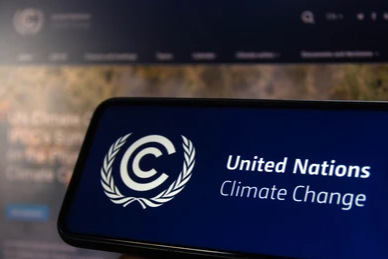The issue of climate change is one of the most pressing challenges facing the world today. To address this issue, the United Nations Framework Convention on Climate Change (UNFCCC) was established in 1994.
The United Nations Framework Convention on Climate Change (UNFCCC) is a landmark international treaty signed by 197 parties with the goal of stabilizing greenhouse gas concentrations in the atmosphere and avoiding dangerous climate change.
The History of the UNFCCC
The UNFCCC was signed at the 1992 United Nations Conference on Environment and Development in Rio de Janeiro, Brazil. The treaty was established as a response to the growing concerns about the impact of human activities on the global climate.
The primary objective of the UNFCCC is to stabilize greenhouse gas concentrations in the atmosphere to prevent dangerous anthropogenic interference with the climate system.
The Parties of the UNFCCC:
The UNFCCC has 197 parties, including all United Nations Member States. The parties to the UNFCCC are divided into two groups: developed and developing countries. Developed countries are required to take the lead in reducing their greenhouse gas emissions, while developing countries are encouraged to reduce their emissions and receive support from developed countries in doing so.
Key Objective of the UNFCCC
The Conference of Parties (COP):
The Conference of Parties (COP) is the supreme decision-making body of the UNFCCC, and is comprised of representatives from all Parties to the Convention.
The COP meets annually to negotiate and adopt decisions on a range of issues related to climate change, including the implementation of the Paris Agreement.
 |
| World Leaders at COP27 |
The COP27 Climate Summit, which was held in Sharm el-Sheikh, Egypt from November 6th to 20th, 2022, concluded with the following historic decisions:
- The establishment and operationalization of a loss and damage fund.
- Boosting low-emissions energy.
- Reflections on the progress made and opportunities missed in terms of addressing climate change.
The Paris Agreement:
The Paris Agreement, adopted in 2015 at COP 21, is a key component of the UNFCCC and provides a framework for action to limit global temperature rise to well below 2°C above pre-industrial levels, and to pursue efforts to limit the temperature increase to 1.5°C. The Paris Agreement also establishes a system for reporting and monitoring progress towards reducing greenhouse gas emissions and adapting to the impacts of climate change.
The Green Climate Fund (GCF):
The Green Climate Fund (GCF) was established as part of the UNFCCC to assist developing countries in financing their efforts to address climate change. The GCF provides financial support for projects and programs that reduce greenhouse gas emissions and enhance resilience to the impacts of climate change.
Efforts by the UNFCCC to Address Climate Change:
- Negotiating Agreements:
The UNFCCC has played a key role in negotiating and adopting international agreements to address climate change, including the Kyoto Protocol and the Paris Agreement. These agreements provide a framework for action to reduce greenhouse gas emissions and address the impacts of climate change.
 |
| World Leaders at COP |
- Supporting National Action:
The UNFCCC provides support to governments and organizations in their efforts to address climate change. This includes providing technical and financial assistance, as well as capacity-building activities, to help countries implement their commitments under the Paris Agreement.
- Raising Awareness:
The UNFCCC plays a critical role in raising awareness about the issue of climate change and the need for action. The Convention organizes international events, such as the annual COP meetings, to bring together stakeholders from around the world to discuss and find solutions to the challenge of climate change.
The UNFCCC has been at the forefront of the global response to climate change for over two decades. Through its initiatives and COP meetings, the UNFCCC has helped to coordinate international efforts to reduce greenhouse gas emissions, improve resilience to the impacts of climate change, and finance sustainable development.
The UNFCCC’s efforts will continue to play a crucial role in ensuring a sustainable future for generations to come.












